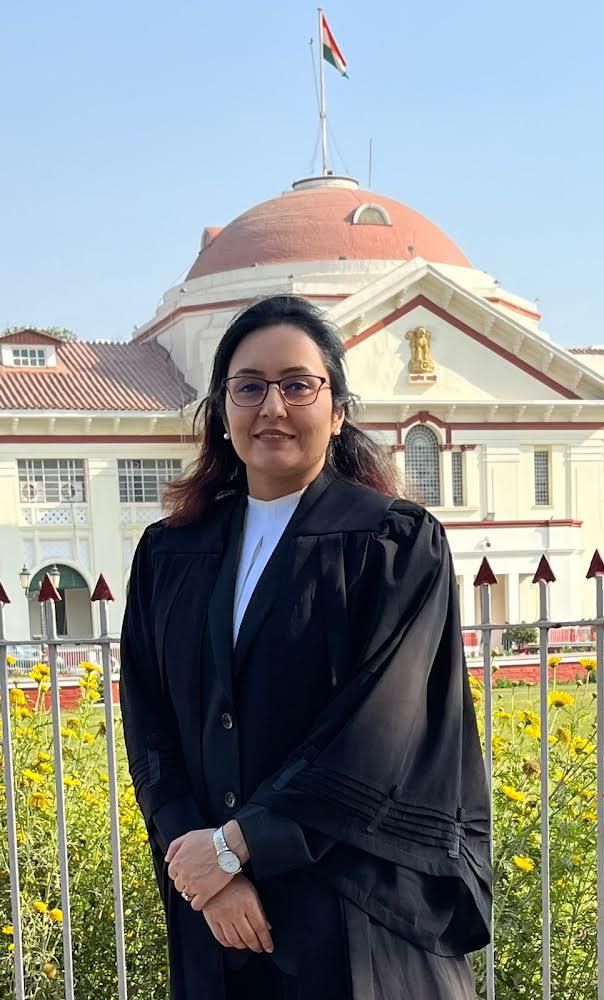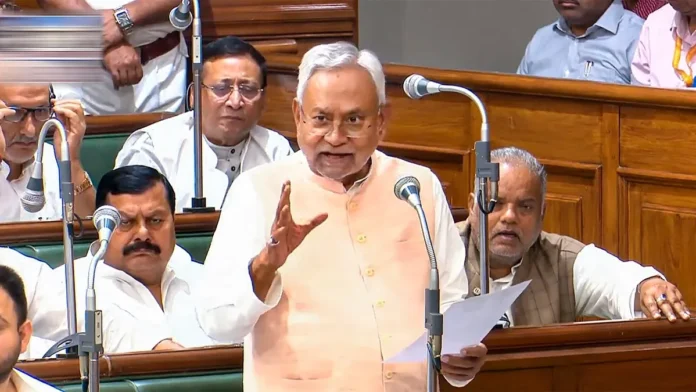This brings us to a pertinent question, whether the need for reservation or the empirical data was provided by the ‘Commission’ or the reservation has been made on the basis of the caste survey done by the State?

Prachi Pallavi
Articles 15 (1) & (4) and 16 (1) & (4) of the Constitution recognises affirmative action of the State. Bihar has enacted two new laws, namely, the Bihar Reservation of Vacancies in Posts and Services Amendment Act, 2023 and the Bihar Reservation (Admission In Educational Institutions) Amendment Act, 2023. The reservation cap in the State has exceeded 50%.
The issue of ‘reservation’ usually generates the debate either ‘for’ or ‘against’. In this context, it becomes relevant to cite the observation made by Hon’ble Justice R.V. Raveendran in Ashoka Kumar Thakur versus Union of India and others, 2008 (6) SCC 1, where His Lordship observed:
“Caste has divided this country for ages. It has hampered its growth. To have a casteless society will be realisation of a noble dream. To start with, the effect of reservation may appear to perpetuate caste. The immediate effect of caste-based reservation has been rather unfortunate. In the pre-reservation era people wanted to get rid of the backward tag—either social or economical. But post reservation, there is a tendency even among those who are considered as “forward”, to seek the “backward” tag, in the hope of enjoying the benefits of reservations. When more and more people aspire for “backwardness” instead of “forwardness” the country itself stagnates. Be that as it may. Reservation as an affirmative action is required only for a limited period to bring forward the socially and educationally backward classes by giving them a gentle supportive push. But if there is no review after a reasonable period and if reservation is continued, the country will become a caste divided society permanently. Instead of developing a united society with diversity, we will end up as a fractured society forever suspicious of each other. While affirmative discrimination is a road to equality, care should be taken that the road does not become a rut in which the vehicle of progress gets entrenched and stuck. Any provision for reservation is a temporary crutch. Such crutch by unnecessary prolonged use, should not become a permanent liability. It is significant that the Constitution does not specifically prescribe a casteless society nor tries to abolish caste. But by barring discrimination in the name of caste and by providing for affirmative action, Constitution seeks to remove the difference in status on the basis of caste. When the differences in status among castes are removed, all castes will become equal. That will be a beginning for a casteless egalitarian society.”
It is equally relevant to cite the other side of the coin, the first judgment in which a discordant note with regard to 50% limit of reservation was expressed, State of Kerala and another versus N.M. Thomas and others, 1976 (2) SCC 310, it was observed:
“This means that the reservation should be within the permissible limits and should not be a cloak to fill all the posts belonging to a particular class of citizens and thus violate Article 16(1) of the Constitution indirectly. At the same time clause (4) of Article 16 does not fix any limit on the power of the Government to make reservation. Since clause (4) is a part of Article 16 of the Constitution it is manifest that the State cannot be allowed to indulge in excessive reservation so as to defeat the policy contained in Article 16(1). As to what would be a suitable reservation within permissible limits will depend upon the facts and circumstances of each case and no hard and fast rule can be laid down, nor can this matter be reduced to a mathematical formula so as to be adhered to in all cases. Decided cases of this Court have no doubt laid down that the percentage of reservation should not exceed 50 per cent. This is, however, a rule of caution and does not exhaust all categories. Suppose for instance a State has a large number of backward classes of citizens which constitute 80 per cent of the population and the Government, in order to give them proper representation, reserves 80 per cent of the jobs for them, can it be said that the percentage of reservation is bad and violates the permissible limits of clause (4) of Article 16? The answer must necessarily be in the negative. The dominant object of this provision is to take steps to make inadequate representation adequate.”
The moot question to be answered is whether reservation beyond 50% is legally sustainable in view of the Nine Judge Bench decision in Indra Sawhney versus Union of India [1992 Suppl. (3) SCC 217] and M. Nagaraj versus Union of India (2006) 8 SCC 212? The answer is emphatic ‘No’. The ratio laid down in Indra Sawhney judgment is, reservation under Article 16(4) of the Constitution should not exceed 50% and for exceeding reservation beyond 50%, extra-ordinary circumstances as indicated in paragraph 810 of Justice Jeevan Reddy should exist for which extreme caution is to be exercised.
Further, the Nine Judge Constitution Bench in Indra Sawhney case, had issued directions to the Government of India and each of the State Governments for constitution of a permanent body for entertaining, examining and recommending upon requests for inclusion and complaints of over inclusion of other backward classes of citizens. In this regard, it is pertinent to mention that Bihar Reservation of Vacancies in Posts and Services (SC/ST, OBC) Act, 1991 identifies OBCs and EWBCs.
This brings us to a pertinent question, whether the need for reservation or the empirical data was provided by the ‘Commission’ or the reservation has been made on the basis of the caste survey done by the State?
The above ratio of Indra Sawhney judgment was upheld by the Constitution Judge Bench decision of Hon’ble Apex Court in the ‘Maratha reservation case’, Dr. Jaishree Laxman Rao Patil versus The Chief Minister & Ors. along with analogous cases (Civil Appeal No. 3123/2020) , it was further held that 50% is reasonable and it is to attain the object of equality. To change the 50% limit is to have a society which is not founded on equality but is based on caste rule.
It was also held that the proposition is well settled that Commissions’ reports are to be looked into with deference. However, a rider was placed on the report of ‘Commission’, one of the parameter of scrutiny of Commission’s report as approved by this Court is that, on the basis of data and materials referred to in the report, whether conclusions arrived by the Commission are justified.
Now the question arises, how Tamil Nadu managed to have reservation beyond the 50% cap? How was this made possible? The Tamil Nadu government had introduced a Bill, namely, the Tamil Nadu Backward Classes, Scheduled Castes and Scheduled Tribes (Reservation of Seats in Educational Institution and of appointments or posts in the Services under the State) Bill, 1993 which received the President’s assent. This was included in the Ninth Schedule of the Constitution.
Article 31B of the Constitution states that Acts within the Ninth Schedule will not become void on ground of violating Fundamental Right and is outside the purview of Judicial review. Therefore, reservation beyond 50% continued in the State of Tamil Nadu.
The point to note is that the Hon’ble Apex Court has decided in I.R. Goelho (dead) by LRs versus State Of Tamil Nadu & Ors, AIR 2007 SC 861, whether it is permissible for the Parliament under Article 31B to immunize legislations from fundamental rights by inserting them into the Ninth Schedule and, if so, what is its effect on the power of judicial review of the Court. It was held that if the infraction affects the basic structure, then such a law(s) will not get the protection of the Ninth Schedule.
The constitutional validity of the Ninth Schedule Laws on the touchstone of basic structure doctrine can be adjudged by applying the direct impact and effect test, i.e., rights test, which means the form of an amendment is not the relevant factor, but the consequence thereof would be the determinative factor.
( Writer is , Advocate in Patna High Court )


